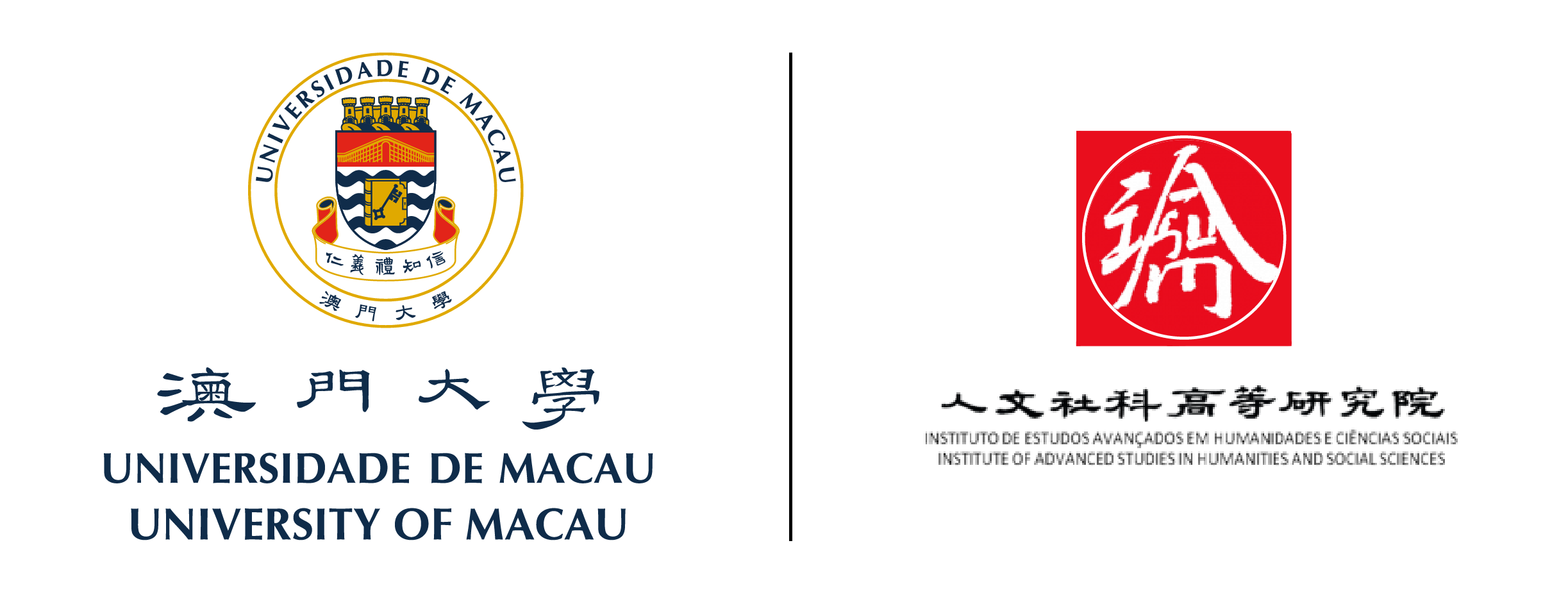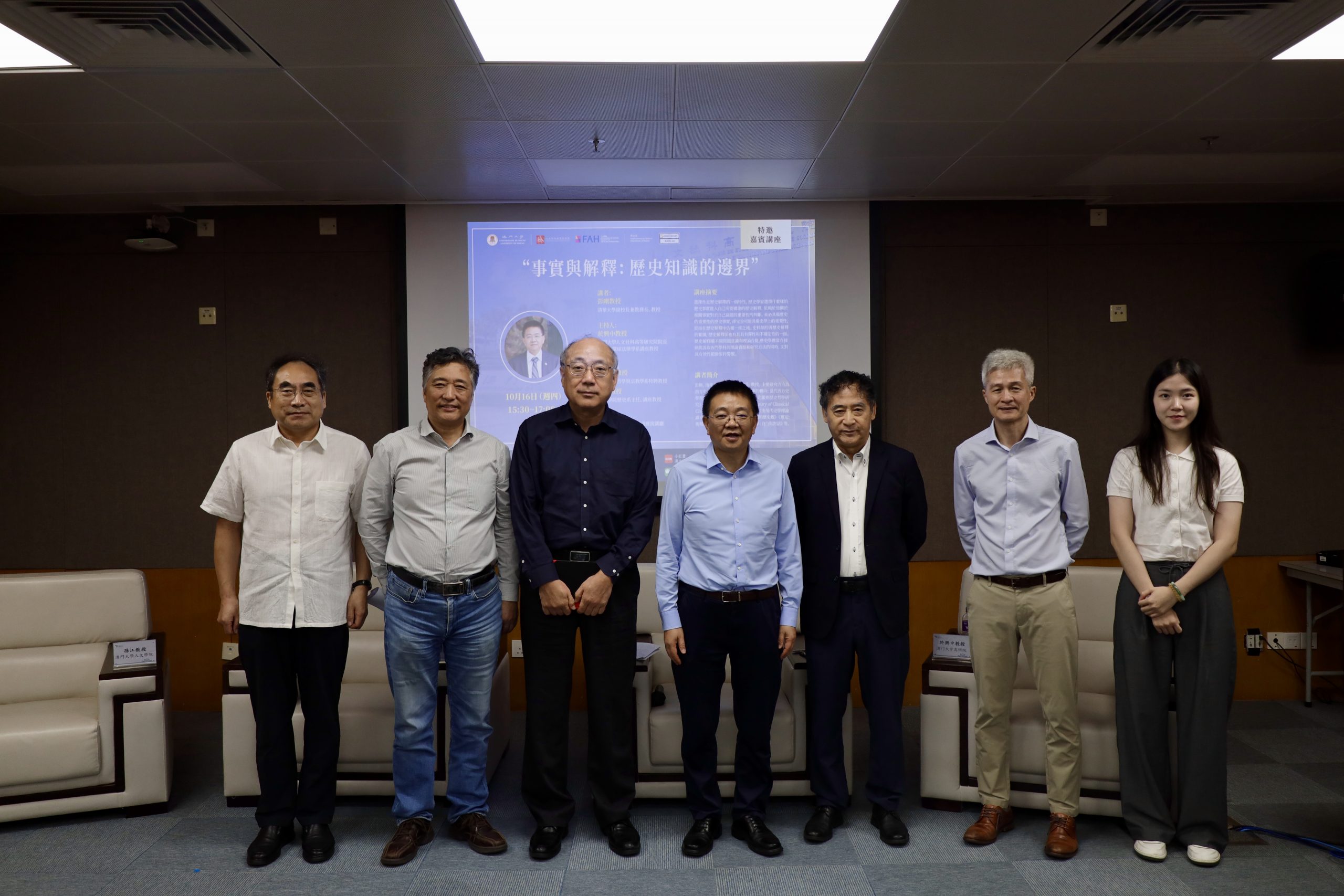
The Distinguished Guest Lecture “Facts and Interpretation: On the Boundaries of Historical Knowledge,” organized by the Institute of Advanced Studies in Humanities and Social Sciences (IAS) of the University of Macau and co-organized by the Department of History, Faculty of Arts and Humanities (FAH), was successfully held on the afternoon of 16 October 2025 at the Auditorium (Basement Floor) of the University Gallery (E1). The keynote speaker was Professor Gang Peng, Vice Rector and Provost of Tsinghua University. The lecture was moderated by Professor Xingzhong Yu, Director of IAS and Chair Professor in the Department of Global Legal Studies, Faculty of Law. Professor Qingjie Wang, Distinguished Professor in the Department of Philosophy and Religious Studies (FAH), and Professor Jiang Sun, Head and Chair Professor of the Department of History (FAH), served as discussants.
Opening his talk with the question “How do historical facts enter historical interpretation?”, Professor Peng argued that historians’ reconstructions of the past are shaped not only by the scarcity and perspectival nature of sources but also by value orientations and the research problems that guide inquiry. Decisions about which facts merit incorporation into an explanatory narrative, he suggested, constitute a second-order selection grounded in judgments of relevance and significance. He further distinguished between historical significance—the impact of events themselves—and historiographical significance—the methodological and conceptual innovations that may hold lasting scholarly value even when detached from grand historical events.
Turning to certainty and uncertainty in historical explanation, Professor Peng cautioned that not being all-knowing does not entail the unknowable. Finite knowledge still permits reasonable interpretation. Adopting the metaphor that “history is a fallen tree,” he illustrated how multiple vantage points yield complementary readings that together enrich understanding. Incomplete archives, he stressed, should not license relativism. Rather, historians must proceed with humility and vigilance, piecing together a credible contour of the past while remaining lucid about the limits of our own cognition—the boundary between what can and cannot be known.
In the discussion session, Professors Wang and Sun responded from the perspectives of the history of philosophy and historiographical methodology. The exchange examined core issues including the line between facts and interpretation, the comparative weight of personal versus collective histories, the subjectivity inherent in historical knowledge, and the power effects embedded in interpretive processes.
The event drew a full house of nearly one hundred participants from across disciplines and featured lively Q&A and cross-disciplinary dialogue on historical knowledge. The IAS Distinguished Guest Lecture series invites leading scholars to the University of Macau to foster academic conversation within and beyond campus. This lecture offered fresh perspectives for future work in historiographical methodology and the philosophy of knowledge.







